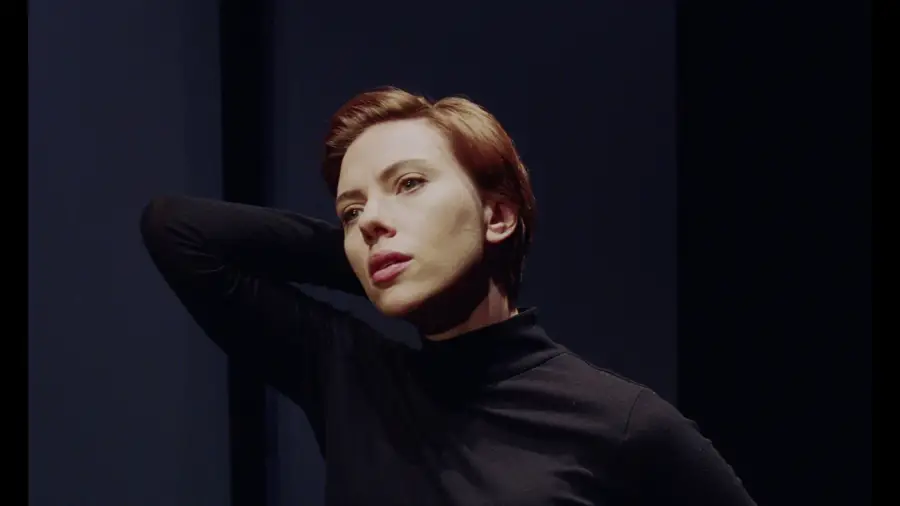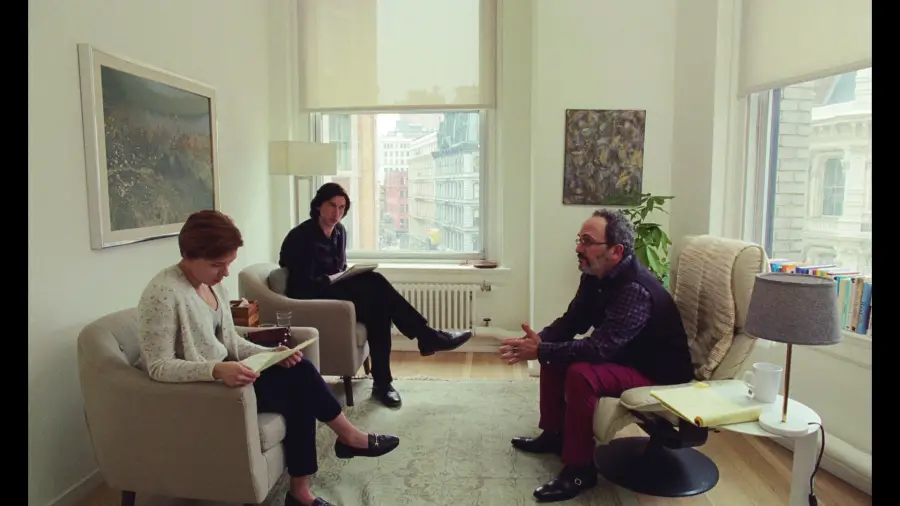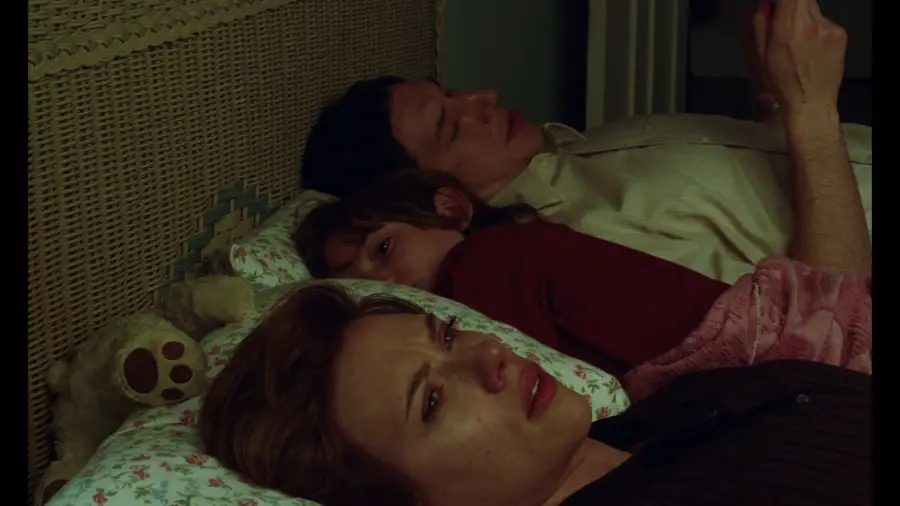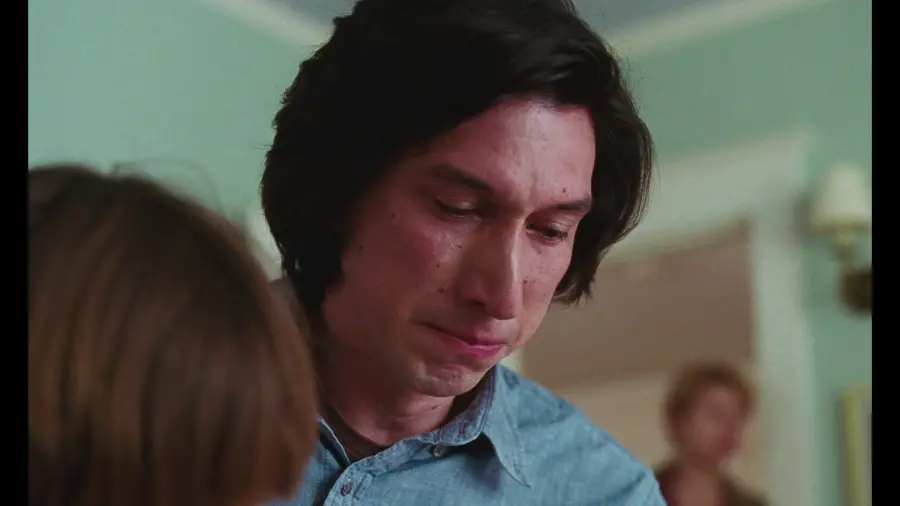Marriage Story

See more details, packaging, or compare
Synopsis
A love story about divorce. A marriage coming apart and a family coming together. Marriage Story is a hilarious and harrowing, sharply observed, and deeply compassionate film from the acclaimed writer-director Noah Baumbach. Adam Driver and Scarlett Johansson deliver tour-de-force performances as Charlie, a charismatic New York theater director wedded to his work, and Nicole, an actor who is ready to change her own life. Their hopes for an amicable divorce fade as they are drawn into a system that pits them against each other and forces them to redefine their relationship and their family. Featuring bravura, finely drawn supporting turns from Alan Alda, Ray Liotta, and Laura Dern—who won an Academy Award for her performance here—as the trio of lawyers who preside over the legal battle, Marriage Story (nominated for six Academy Awards, including best picture) is a work of both intimacy and scope that ultimately invokes hope amid the ruins.
Picture 9/10
The Criterion Collection presents Noah Baumbach’s Marriage Story on Blu-ray in the aspect ratio of 1.66:1 on a dual-layer disc. The notes on the transfer state that this presentation comes from a new 4K scan of the 35mm original camera negative. The word “new” throws me off a bit, but I’m going to assume that this master is the same one that Netflix uses for the film on their streaming platform as this doesn’t look too far removed from what appears there.
There wasn’t anything all that surprising here since I was expecting something that looks like what one would get on Netflix, if not even a little better, and those expectations have been met. It’s a highly detailed, consistently sharp looking presentation, that still manages to deliver some bold looking colours (at least in the L.A. sequences) and a wonderful film-like look thanks to its strong handling of the film’s grain. Blacks can be a little weak and milky, flattening out the picture during some of its low-lit sequences, like in the theater or bar settings, but to be fair, this could come down to lighting and/or film stock, and this still replicates the look on Netflix, even the 4K presentation (which has better blacks itself).
Damage isn’t an issue, the source looking to be spotless, and there are no digital artifacts to speak of, which would be an advantage over streaming technology with the improved bandwidth. All told, it’s a strong presentation.








































Audio 8/10
The film comes with a surprisingly active 5.1 surround soundtrack, delivered in DTS-HD MA on this disc (it’s only offered in Dolby Digital 5.1 on Netflix through my Amazon Fire Stick). It’s of course a talky film, there is a tremendous amount of range and depth there, best shown in some of the shouting matches that occur. The mix can get a little playful when spreading out between the channels, though most everything still sticks to the fronts. Some effects, like planes and cars, work their way to the rears with some great direction. Randy Newman’s score also fills out the environment and it sounds razor sharp. All-around, it’s a fantastic track for the film.
(Criterion also includes a descriptive-audio track, presented in Dolby Digital 5.1, replicating a similar option that Netflix provides on their streaming service.)
Extras 7/10
Not up to what Criterion put together for their previous Netflix release, Alfonso Cuaron’s Roma, but they’ve still managed to put together a decent little special edition with a few nice touches. The supplements open with a new 21-minute interview with director Noah Baumbach, who explains the desire he had to not just make a movie about the mechanics of a divorce (right down to the almost police procedural-like elements that go on behind-the-scenes) but a film that’s also an examination of a marriage. He explains the desire he had to make both characters sympathetic, to show how people “perform” when going through divorce (which shows through more with the lawyers in the film) and why he felt this film deserved a look different from his previous films.
It’s an intriguing and thoughtful discussion about the creative process behind the film, and I figured the other interviews found on here would continue that, though sadly that’s not the case. A 20-minute feature around the film’s players (actors Scarlet Johansson, Adam Driver, Laura Dern, Ray Liotta, Julie Haggerty, and Alan Alda) is fine enough, with the performers talking about their draw to the film, working with Baumbach, how they were able to work with him on building their performances, and what it was like working with the other actors (Alda states fondly that acting with Driver in a scene felt like acting on the stage). But a short 12-minute one with the filmmakers (featuring Baumbach, producer David Heyman, editor Jennifer Lame, production designer Jade Healy, and costume designer Mark Bridges) feels more promotional in nature, with only some details about the thinking behind the costumes and finding the appropriate locations sticking out.
That last collection of interviews didn’t add much but this is made up for a little bit with the addition of a 96-minute making-of documentary. Though that might sound lengthy, at least a third of it is made up of clips from the film. The other two-thirds, though, are edited together from video journal footage and shows the intense preparation that went into a number of scenes. A lot of the footage shows Baumbach working through scenes with his actors, whether it be with Ray Liotta in how he needs his character to convince Driver’s his way is the only way, or working with Johansson what has been building up all these years in her marriage. You also get to watch Driver and Johansson work themselves down after what is the film’s most intense moment, and you also get to see some charming little moments, like Driver just hanging out with his young co-star, Azhy Robertson. I’ve seen plenty of making-of featurettes that follow a similar format, but this is one of the more engrossing ones I can recall seeing recently.
Following that is an 11-minute interview with Randy Newman about the film’s score, mixed in with some footage of the recording session with the orchestra. There’s also a 7-minute video that looks to have been made for Variety’s website, called Making a Scene with Noah Baumbach. This video simply features Baumbach in the L.A. apartment set (which was an actual apartment they located) talking about the planning that went into the final argument between Johansson’s and Driver’s characters, and how they needed to plan every detail, which included getting an apartment that was laid laid out and dressed up a specific way. The planning even went right down to the placement of the hole Driver would put in the wall. Amusingly, they actually placed fake walls over the actual wall so they could replace them and do many takes (which you can see in the included making-of) but Driver managed to still punch through to the apartment next door.
The disc then closes off with two trailers, each one just over a minute and focusing on the letter each character writes about the other. Criterion also includes an insert that features a reprint of an introduction written by Linn Ullmann to “a book of images issued by Assouline as a companion to Marriage Story” in 2019. Criterion also packages this in a digipak, but in one of the coolest touches I can recall in recent memory, Criterion has placed reproductions of the individual letters written by the two characters about the other, right down to mistakes, cross-outs, and so on. It’s such a wonderful little touch.
Also of note, this release doesn’t feature a chapter menu, and the “timeline” feature that has been found on Criterion’s titles since the beginning, is also gone, meaning you cannot bookmark. This has happened before, primarily with releases for David Lynch’s films, because he doesn’t like the concept of chapter stops. What’s odd here, though, is that the disc still has chapter stops, 16 of them, so I don’t feel that is why this was done here. Either Netflix didn’t want it, or Baumbach didn’t want it (though it’s been on Criterion’s discs for his other films), or Criterion is dropping the feature and chose this title to start. Thankfully, they have still left the “resume” feature, which gives you the option to resume where you left off.
Overall, the material isn’t as strong as what was found on Roma, and in some respects it’s not so different from what a major studio probably would have put together, but the material is at least engaging (for the most part) and I do love the little touch of adding the letters to this release.
Closing
Not as impressive as their edition for Roma, but Criterion’s home video release of another Netflix film does provide a strong looking presentation, some engaging special features, and the clever addition of the letters written by the two characters. For those that are fond of the film it’s worth picking up.







